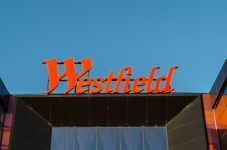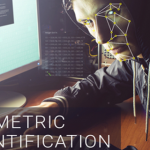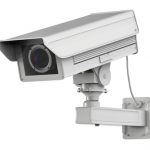Shopping Centre Giant Installs Facial Recognition Technology

Sophisticated facial recognition software, working in conjunction with your mobile phone, is tracking your every move and monitoring your every mood, each time you set foot inside a Westfield shopping centre.
Tracking your movements, mood and purchases
The Westfield ‘Smartscreen Network’ comprises small cameras fixed to advertising screens throughout Westfield shopping centres, which detect individual faces and record the age, gender and mood of shoppers.
The shopping centre giant says it uses this information to constantly improve the experience of its patrons – but the company’s lack of disclosure has raised concerns about the inadequacy of privacy laws in Australia.
The Privacy Act 1988 (Cth) regulates the collection of personal and sensitive information, but under existing laws, retailers do not need to consent of shoppers to collect data obtained through CCTV cameras.
Those concerned about ever-increasing privacy intrusions have called on Westfield to divulge the extent of the information it is collecting and storing, in order to allow customers to understand why they are being tracked.
Big Brother technology
As we move into the 21st Century, it seems that many of George Orwell’s predictions from the novel 1984 are becoming a reality.
‘Big brother’ technology is everywhere these days – we’re filmed and photographed as we walk the streets, as we use public transport and as we enter public and private buildings. New laws even require internet service providers to store our metadata for two years and disclose it to a range of government agencies, without them even having to obtain a warrant. And it seems intrusions on privacy are only going to get worse.
Uses of the technology
In China, advances in artificial technology have come a very long way and now, facial recognition technology is simply a part of daily life – people use it to log into apps, enter secure buildings, and the government uses it to scan crowds. You can use it to withdraw cash from ATMs, and one fast food store in Beijing provides meal recommendations and lets you order using facial recognition.
The software behind the technology is better than ever before. It can now compensate for bad lighting and poor angles, and for changes in age, meaning that people can be identified from images that are many years old. And the more photos there are in a database, the more accurate the technology can be.
Cover your computer’s camera
Westfield is just the latest in a string of bodies to use facial recognition technology.
Earlier this year, Facebook applied for patents in the US for technology to measure the typing speed, text size, and choice of emoji in the messages and posts of users, well as the location they are sent from.
The social media giant also applied for a patent to use the camera feature on your device to determine your state of mind; whether you are sad, happy, angry, etc.
The technology is reported to use this information to provide content which increases the chance of keeping you on the site longer, and to tailor content and advertising to things you have shown an interest in.
But as wonderful as this may seem, such technologies are working their way into our private as well as public lives.
‘Public safety’ versus privacy
Facial recognition technology is about to be deployed in a major way by the federal government after all Australian states and territories recently agreed to hand over driver licence photos to create to enable real-time biometric face-matching at a range of locations.
As with most intrusions into our privacy, the government claims the move is vital in the fight against terrorism.
Indeed technology has incredible potential, but we need to be vigilant in balancing the purported benefits against the protection of our personal privacy – after all, without privacy there is no freedom.







